Find Help
More Items From Ergsy search
-
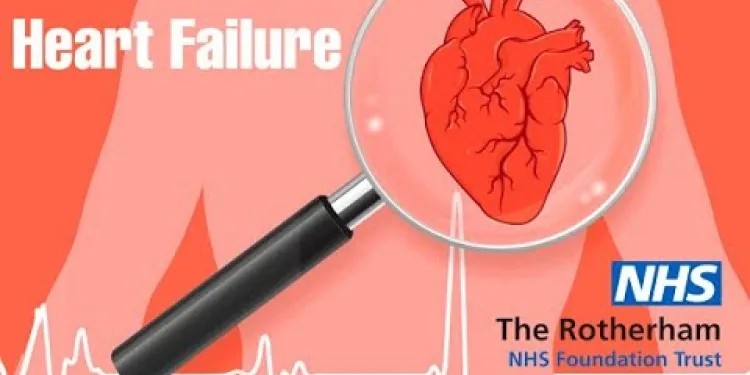
Heart Failure : Symptoms of heart failure
Relevance: 100%
-
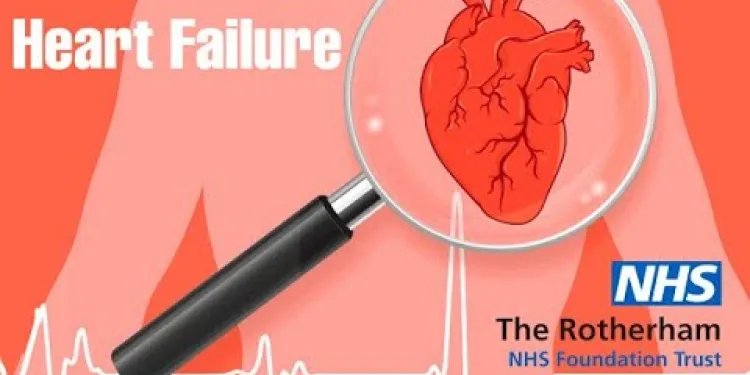
Heart Failure : What is heart failure?
Relevance: 100%
-
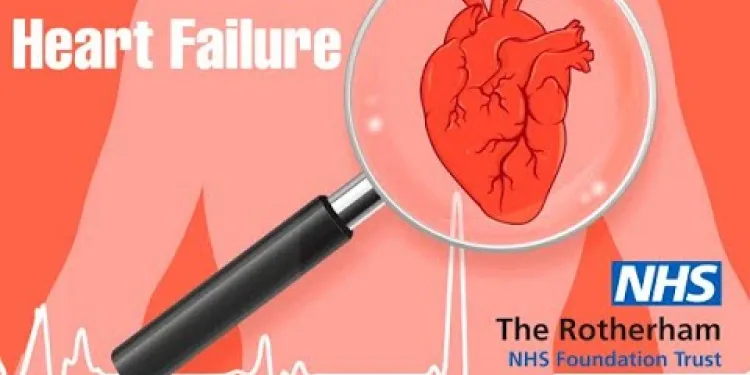
Heart Failure : Heart failure that cannot pump
Relevance: 97%
-

Heart Failure : The normal heart
Relevance: 95%
-

Heart failure introduction
Relevance: 93%
-

Are there different types of heart failure?
Relevance: 89%
-

What causes heart failure?
Relevance: 89%
-

How is heart failure diagnosed?
Relevance: 88%
-
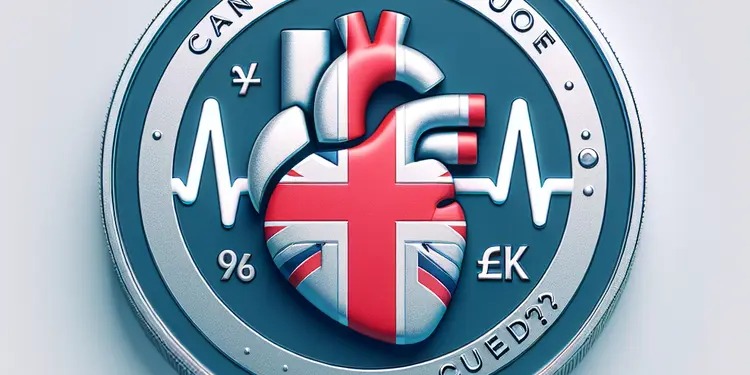
Can heart failure be cured?
Relevance: 88%
-

Can heart failure be prevented?
Relevance: 88%
-
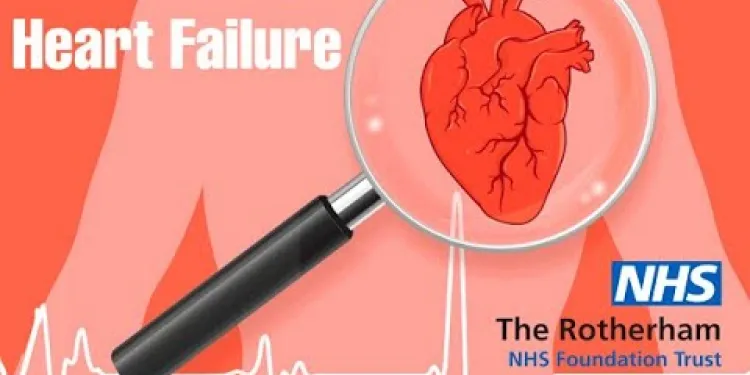
Heart Failure : When the heart becomes stiff?
Relevance: 88%
-

What is the prognosis for someone with heart failure?
Relevance: 84%
-

Is Baxdrostat used in treating heart failure?
Relevance: 84%
-

Can heart failure affect other organs?
Relevance: 81%
-

What is the role of diet in managing heart failure?
Relevance: 81%
-
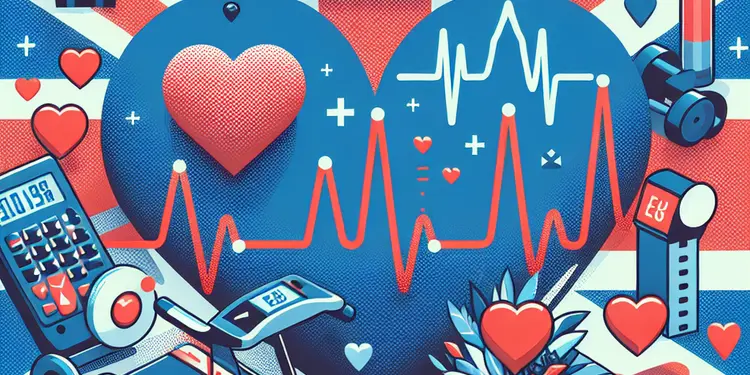
How does exercise impact heart failure?
Relevance: 81%
-
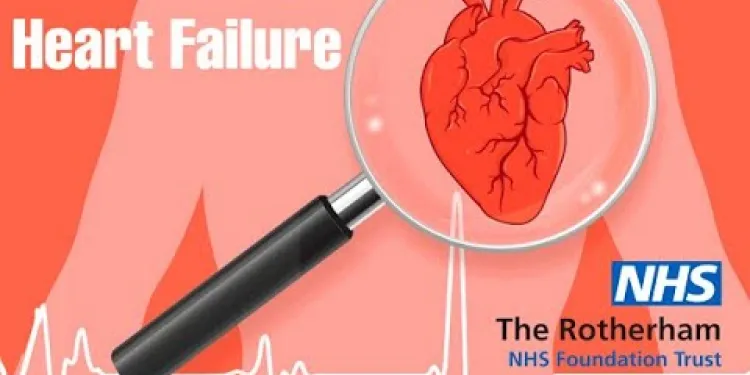
Heart Failure : Treatment and monitoring of fluid retention
Relevance: 80%
-

What should I do if I experience symptoms of heart failure?
Relevance: 80%
-

What medications are commonly prescribed for heart failure?
Relevance: 80%
-
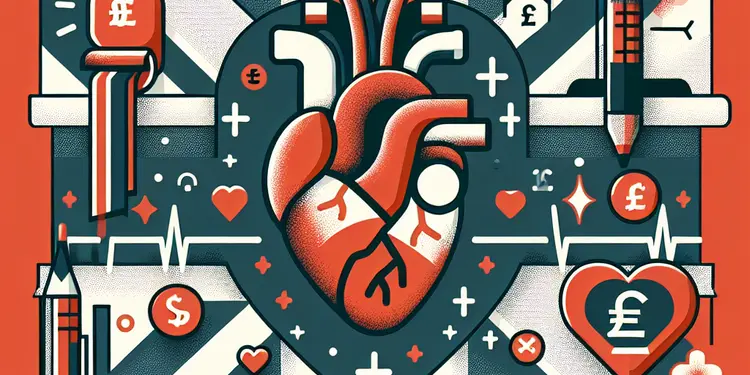
What is heart failure?
Relevance: 70%
-

What are the common symptoms of heart failure?
Relevance: 62%
-

What lifestyle changes can help manage heart failure?
Relevance: 54%
-

How often should someone with heart failure see their doctor?
Relevance: 54%
-
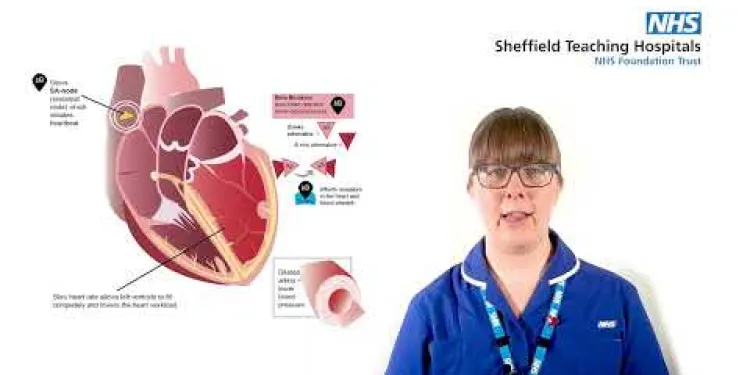
Medicines of the heart
Relevance: 49%
-

Is my abnormal heart rhythm dangerous?
Relevance: 47%
-

How do beta-blockers contribute to heart attack prevention?
Relevance: 45%
-

What are the long-term effects of a heart attack?
Relevance: 45%
-

Is my abnormal heart rhythm dangerous?
Relevance: 44%
-

Does coffee consumption have any long-term heart health effects?
Relevance: 43%
-

Heart stents
Relevance: 43%
-

What are the risk factors for a heart attack?
Relevance: 41%
-

Is it possible to prevent a heart attack?
Relevance: 39%
-

What is heart valve disease?
Relevance: 39%
-

Heart Attack Stories | NHS
Relevance: 39%
-
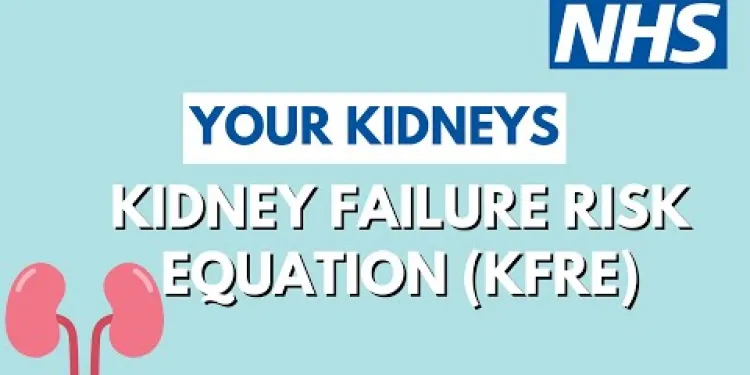
What is my risk of kidney failure with CKD (chronic kidney disease) | UHL NHS Trust
Relevance: 39%
-

Heart Attack Stories | NHS
Relevance: 39%
-

Is it possible to have a heart attack without chest pain?
Relevance: 37%
-

Are there specific fats that support heart health?
Relevance: 37%
-

Will a heart bypass make me live longer?
Relevance: 37%
-

Heart Attack Symptoms - Help Us Help You | NHS
Relevance: 37%
Understanding Heart Failure
Introduction to Heart Failure
Heart failure, commonly referred to as congestive heart failure (CHF), is a chronic condition in which the heart is unable to pump blood effectively to meet the body’s needs. With heart failure, the heart muscles weaken and may become stiff over time, diminishing their ability to supply sufficient oxygen and nutrients to vital organs. This condition is a global health concern and poses significant challenges in the United Kingdom (UK) as well.
Causes of Heart Failure
Heart failure can arise from various underlying health issues, including coronary artery disease, high blood pressure (hypertension), and diabetes. Coronary artery disease obstructs blood flow to the heart muscle, while hypertension places excessive strain on the heart. Additionally, lifestyle factors such as poor diet, lack of exercise, smoking, and obesity significantly contribute to the development of heart failure.
Symptoms of Heart Failure
Patients with heart failure may experience a range of symptoms, including shortness of breath, persistent coughing or wheezing, and swelling in the legs, ankles, or abdomen (edema). Other indicators include fatigue, rapid or irregular heartbeats, and an inability to exercise. These symptoms often vary in severity and can progressively worsen if the condition is left unmanaged.
Treatment Options
Treating heart failure typically involves a combination of lifestyle modifications, medication, and in some cases, surgical interventions. Lifestyle changes such as adopting a heart-healthy diet, engaging in regular physical activity, and quitting smoking are fundamental to managing the condition. Medications, including ACE inhibitors, beta-blockers, and diuretics, help alleviate symptoms and improve heart function. In advanced cases, surgical procedures like heart valve repair or implantation of a pacemaker may be necessary.
Living with Heart Failure in the UK
In the UK, heart failure management includes a comprehensive approach focusing on early diagnosis and effective treatment. The National Health Service (NHS) provides a range of services to support individuals living with heart failure, including specialist clinics, rehabilitation programmes, and access to professional healthcare advice. Patients are encouraged to follow tailored care plans and attend regular check-ups to monitor their condition and prevent complications.
Understanding Heart Failure
What is Heart Failure?
Heart failure is when the heart cannot pump blood well. This happens because the heart muscles may become weak or stiff. If the heart cannot pump enough blood, the body does not get enough oxygen and nutrients. This is a big health problem around the world, including in the UK.
What Causes Heart Failure?
Heart failure can happen if a person has other health problems like clogged heart arteries, high blood pressure, or diabetes. Clogged arteries stop blood from getting to the heart. High blood pressure can make the heart work too hard. Also, unhealthy habits, like eating bad food, not exercising, smoking, and being overweight, can lead to heart failure.
What are the Symptoms of Heart Failure?
People with heart failure might have trouble breathing, cough a lot, or notice swelling in their legs, ankles, or tummy. They might also feel very tired, have fast or uneven heartbeats, and find it hard to exercise. These problems can get worse if not treated.
How is Heart Failure Treated?
Treating heart failure means changing some habits, taking medicine, and sometimes having surgery. Healthy changes include eating better, exercising, and quitting smoking. Medicines help the heart work better, like ACE inhibitors and beta-blockers. Some people might need surgery to fix heart valves or get a pacemaker.
Living with Heart Failure in the UK
In the UK, heart failure care focuses on finding it early and treating it well. The NHS helps people with heart failure by offering special clinics and programs. People should follow their doctor’s care plans and go to check-ups to keep track of their health and stop more problems from happening.
Frequently Asked Questions
What is heart failure?
Heart failure is a condition in which the heart is unable to pump blood effectively to meet the body's needs.
What are the common symptoms of heart failure?
Common symptoms include shortness of breath, fatigue, swollen ankles and legs, and rapid or irregular heartbeat.
What causes heart failure?
Heart failure can be caused by conditions such as coronary artery disease, high blood pressure, and diabetes, among others.
How is heart failure diagnosed?
Heart failure is diagnosed through a combination of medical history, physical examination, and diagnostic tests such as blood tests, ECG, echocardiogram, and MRI.
Can heart failure be cured?
While heart failure is a chronic condition that can't typically be cured, treatments are available to manage symptoms and improve quality of life.
What treatments are available for heart failure?
Treatments may include lifestyle changes, medications, devices like pacemakers, and in some cases, surgery or heart transplantation.
What lifestyle changes can help manage heart failure?
Lifestyle changes such as eating a healthy diet, exercising regularly, quitting smoking, and reducing salt intake can help manage heart failure.
Is heart failure the same as a heart attack?
No, a heart attack occurs when blood flow to the heart is blocked, while heart failure refers to the heart's inability to pump blood effectively. However, a heart attack can lead to heart failure.
Who is at risk for heart failure?
People with conditions like high blood pressure, diabetes, obesity, or a history of heart disease are at higher risk for heart failure.
How can I prevent heart failure?
Preventative measures include maintaining a healthy lifestyle, managing existing health conditions, and having regular check-ups with your GP.
What is the prognosis for someone with heart failure?
Prognosis varies depending on the severity of the condition, treatment adherence, and overall health, but many people can manage their symptoms and lead a relatively normal life.
How often should someone with heart failure see their doctor?
The frequency of doctor visits can vary, but regular check-ups are crucial for managing the condition effectively. Your GP will provide specific recommendations based on your individual case.
What role does medication play in treating heart failure?
Medications can help control symptoms, improve heart function, and reduce the risk of complications. Common medications include ACE inhibitors, beta-blockers, and diuretics.
Can exercise help with heart failure?
Yes, regular exercise under the guidance of a healthcare provider can improve symptoms and overall heart health. However, it's important to follow a personalised exercise plan.
What should I do if I suspect I have heart failure?
If you suspect you have heart failure, it's important to seek medical attention promptly for diagnosis and to discuss potential treatment options with your healthcare provider.
What is heart failure?
Heart failure means the heart is not pumping blood as well as it should. Blood carries oxygen and food to the body. If the heart doesn't pump well, the body might not get enough oxygen and food.
If you have heart failure, you might feel tired or short of breath. You may find it hard to do things you used to do.
To understand better, you can:
- Look at pictures of the heart. This can help you see how it works.
- Watch videos made for kids about the heart. These can be fun and easy to understand.
- Ask a grown-up to explain it to you in simple words.
- Use apps or tools that help you learn about the body.
Heart failure means the heart cannot push blood well enough to give the body what it needs.
What are the common signs of heart problems?
Heart problems can make you feel tired and weak. You might find it hard to breathe, even when you are resting. Your legs, ankles, or feet might swell up. You could feel dizzy or have a fast heartbeat. If you notice these signs, talk to a doctor. They can help you feel better.
Reading tools:
- Use pictures to show the signs.
- Watch videos that explain heart problems simply.
- Ask a friend or family member to read with you.
Some common signs are:
- Feeling like you can't get enough air.
- Feeling very tired.
- Your ankles and legs might get puffy.
- Your heart might beat fast or in a strange way.
Why do people get heart failure?
Heart failure happens when the heart has trouble pumping blood. Here are some reasons why this can happen:
1. Heart is weak: Sometimes the heart muscle is not strong enough.
2. Heart is damaged: Heart attacks can hurt the heart.
3. Blood pressure is high: High blood pressure makes the heart work too hard.
If you want to know more or need help, you can:
- Ask a doctor to explain more.
- Use pictures or videos to learn.
Heart failure can happen when things like heart disease, high blood pressure, and diabetes are making your heart work too hard.
How do doctors find out if someone has heart failure?
Doctors check if your heart is not working well. Here is how they do it:
- Talk with you: The doctor will ask questions about how you feel and your health.
- Listen to your heart: The doctor listens to your heartbeat with a stethoscope.
- Body check: The doctor checks your body for swelling and other signs.
- Take a picture of the heart: Doctors might use machines to take pictures of your heart, like an X-ray or an ultrasound.
- Blood test: A blood test can show if anything is wrong.
If you find reading hard, ask someone to help you or use a text-to-speech tool to listen to the words.
Doctors find out if someone has heart failure by doing different checks. They will ask about your health, look at you, and do some tests. The tests can be blood tests, ECG, echocardiogram, and MRI.
Can doctors fix heart failure?
Heart failure means the heart is not as strong as it should be.
Doctors can't always make heart failure go away forever. But they can help to make it better.
People with heart failure can take medicine or use other treatments. They can feel better and have more energy.
It is important to see a doctor and follow their advice.
It can also help to eat healthy foods, exercise gently, and rest well.
If you need help reading, you can ask someone to read it with you or use a voice reader on your phone or computer.
Heart failure is something that doesn't usually go away, but there are ways to help make it better. Doctors can give treatments to help with the symptoms and help people feel better and do more things.
What can help if your heart is not working well?
If your heart is not strong, doctors can help you. They might give you medicine. This can make your heart stronger. Sometimes, people need to eat healthy food and exercise a little. A doctor or nurse can show you how. You might also need a special machine to help your heart.
It is important to listen to your doctor. They know what is best for you.
If reading is hard, ask someone to read with you. You can also use tools that read the words out loud.
Treatments can be:
- Changing how you live, like eating healthy and exercising.
- Taking medicine to help your heart.
- Using special devices called pacemakers.
- Sometimes doctors do surgery or give you a new heart.
If you need help understanding this, you can ask someone you trust to explain it to you. You can also use tools like a dictionary or apps to hear the text read aloud.
How can you take care of your heart?
Changing some things in your life can help your heart. You can eat healthy food, move and play more, stop smoking, and use less salt. Doing these things can make your heart feel better.
Are heart failure and a heart attack the same thing?
No, heart failure and a heart attack are not the same.
Heart failure means the heart is not pumping blood as well as it should. This can make you tired and short of breath.
Heart attack happens when blood can’t get to the heart properly. This can hurt your heart.
It is important to see a doctor if you have any worries about your heart.
To understand better, you can use pictures or talk to someone who knows about hearts, like a doctor or a nurse.
No, a heart attack and heart failure are not the same.
A heart attack happens when blood can't get to the heart. This can block blood flow.
Heart failure means the heart can't pump blood well.
But having a heart attack can cause heart failure later.
Reading tools like text-to-speech or audiobooks can help you understand better.
Who can get heart failure?
Some people are more likely to get heart failure. Here are some reasons why:
- If you already have heart problems
- If you have high blood pressure
- If you have diabetes
- If someone in your family has heart problems
- If you are older
- If you are overweight
- If you smoke or drink a lot of alcohol
If you are worried, talk to a doctor. They can help you understand and stay healthy.
Here are some tools to help you:
- Ask a friend or family member to read with you.
- Use pictures or videos to learn more.
- Talk to your doctor about your heart health.
People with health problems like high blood pressure, diabetes, or being overweight have a higher chance of heart problems. Also, if someone in your family had heart problems, you might too.
How can I stop my heart from getting sick?
Here are ways to stay healthy:
- Eat good food and move your body.
- Take care of any health problems you have.
- Visit your doctor for check-ups.
Try using reminders on your phone to track your healthy habits.
What happens if someone has heart failure?
Heart failure is when the heart doesn't work well.
What will happen next depends on many things:
- How bad the heart problem is.
- How old the person is.
- If the person has other health problems.
- If the person gets help from a doctor.
Doctors can help manage heart failure and make people feel better.
Tools that can help:
- Family and friends can be supportive.
- Regular visits to the doctor.
- Medicine to help the heart.
- Healthy food and exercise.
- Talking to a nurse about how to manage daily life.
How things turn out can be different for everyone. It depends on how bad the condition is, if they take their medicine or treatments, and if they are in good health. But, many people can feel better and live a fairly normal life.
When should you see the doctor if you have heart problems?
If you have heart problems, it's good to see your doctor a lot. Visit your doctor every few months or whenever you have questions.
Sometimes, your doctor might want to see you more often. Always listen to what your doctor says.
If you feel worse, call your doctor right away.
Using a notebook to write down your symptoms and questions can help you remember what to say at the doctor's office.
How often you visit the doctor can be different for everyone. Seeing your doctor regularly is very important to help you stay well. Your doctor will tell you how often you should visit, based on what you need.
How can medicine help if your heart is not working well?
Medicines can help you feel better, make your heart work well, and stop problems from happening. Some common medicines are ACE inhibitors, beta-blockers, and diuretics.
Try using pictures or videos to learn more, or ask someone to explain these words if you need help.
Does exercise help with heart problems?
Exercise is moving your body to stay healthy. It can be walking, playing, or sports.
If someone has heart problems, it means their heart is not working well.
Doing some exercise can make the heart stronger.
But it is important to talk to a doctor first.
A doctor can say what type of exercise is safe.
Using pictures or videos can help understand what exercises to do.
Yes, doing exercise regularly can help your heart feel better and stay healthy. It's good to ask a doctor for help with this. Make sure you follow an exercise plan that is made just for you.
What to Do if You Think You Have Heart Problems
If you think your heart is not working well, here are some steps you can take:
- Tell an Adult: Talk to a parent, guardian, or trusted adult about how you are feeling.
- Visit a Doctor: Make an appointment with a doctor. They can check your heart and help you feel better.
- Share Your Symptoms: Tell the doctor how you feel. It helps if you tell them when the problem started and what makes it better or worse.
- Follow Doctor’s Advice: Do what the doctor tells you to do. They might give you medicine or suggest other ways to stay healthy.
- Ask Questions: If you do not understand something, ask the doctor or nurse to explain it again.
It is important to take care of your heart. Eating healthy food, exercising, and not smoking can help keep your heart strong. Use reminders to remember doctor's visits or medicines.
If you think you might have heart failure, it is important to see a doctor quickly. The doctor can tell if you have heart failure and talk about how to help you feel better.
Useful Links
This website offers general information and is not a substitute for professional advice.
Always seek guidance from qualified professionals.
If you have any medical concerns or need urgent help, contact a healthcare professional or emergency services immediately.
Some of this content was generated with AI assistance. We’ve done our best to keep it accurate, helpful, and human-friendly.
- Ergsy carfully checks the information in the videos we provide here.
- Videos shown by Youtube after a video has completed, have NOT been reviewed by ERGSY.
- To view, click the arrow in centre of video.
- Most of the videos you find here will have subtitles and/or closed captions available.
- You may need to turn these on, and choose your preferred language.
- Go to the video you'd like to watch.
- If closed captions (CC) are available, settings will be visible on the bottom right of the video player.
- To turn on Captions, click settings .
- To turn off Captions, click settings again.
More Items From Ergsy search
-

Heart Failure : Symptoms of heart failure
Relevance: 100%
-

Heart Failure : What is heart failure?
Relevance: 100%
-

Heart Failure : Heart failure that cannot pump
Relevance: 97%
-

Heart Failure : The normal heart
Relevance: 95%
-

Heart failure introduction
Relevance: 93%
-

Are there different types of heart failure?
Relevance: 89%
-

What causes heart failure?
Relevance: 89%
-

How is heart failure diagnosed?
Relevance: 88%
-

Can heart failure be cured?
Relevance: 88%
-

Can heart failure be prevented?
Relevance: 88%
-

Heart Failure : When the heart becomes stiff?
Relevance: 88%
-

What is the prognosis for someone with heart failure?
Relevance: 84%
-

Is Baxdrostat used in treating heart failure?
Relevance: 84%
-

Can heart failure affect other organs?
Relevance: 81%
-

What is the role of diet in managing heart failure?
Relevance: 81%
-

How does exercise impact heart failure?
Relevance: 81%
-

Heart Failure : Treatment and monitoring of fluid retention
Relevance: 80%
-

What should I do if I experience symptoms of heart failure?
Relevance: 80%
-

What medications are commonly prescribed for heart failure?
Relevance: 80%
-

What is heart failure?
Relevance: 70%
-

What are the common symptoms of heart failure?
Relevance: 62%
-

What lifestyle changes can help manage heart failure?
Relevance: 54%
-

How often should someone with heart failure see their doctor?
Relevance: 54%
-

Medicines of the heart
Relevance: 49%
-

Is my abnormal heart rhythm dangerous?
Relevance: 47%
-

How do beta-blockers contribute to heart attack prevention?
Relevance: 45%
-

What are the long-term effects of a heart attack?
Relevance: 45%
-

Is my abnormal heart rhythm dangerous?
Relevance: 44%
-

Does coffee consumption have any long-term heart health effects?
Relevance: 43%
-

Heart stents
Relevance: 43%
-

What are the risk factors for a heart attack?
Relevance: 41%
-

Is it possible to prevent a heart attack?
Relevance: 39%
-

What is heart valve disease?
Relevance: 39%
-

Heart Attack Stories | NHS
Relevance: 39%
-

What is my risk of kidney failure with CKD (chronic kidney disease) | UHL NHS Trust
Relevance: 39%
-

Heart Attack Stories | NHS
Relevance: 39%
-

Is it possible to have a heart attack without chest pain?
Relevance: 37%
-

Are there specific fats that support heart health?
Relevance: 37%
-

Will a heart bypass make me live longer?
Relevance: 37%
-

Heart Attack Symptoms - Help Us Help You | NHS
Relevance: 37%


